The Barberry or Berberis bonsai tree is relatively lesser known but offers great aesthetics with ease of care. In fact, this makes the Barberry tree bonsai a recommended indoor plant. It is bound to leave your guests in awe of your interior decor.
This Barberry bonsai comes well-trained pre-sculpted in a classic-styled pot. It bears cute-looking yellow flowers and numerous small berries of a vivid red color every season. To add to that, even the leaves will change their hues with the season’s moods. This makes the plant ideal for a dynamic style of home decor sparkling with ever-changing aesthetics.
The product package includes the live, healthy plant in a beautiful pot, shipped to you along with simplified care instructions. Thus you will be able to enjoy the rich and vivid colors of this rare indoor bonsai plant with minimum hassles and worries.
Know your Barberry bonsai tree

Sunlight
Indirect sunlight

Watering
Once per day

Pruning
After the flowering season

Repotting
Every 2 years, During spring

Fertilizer
Weak liquid fertilizer
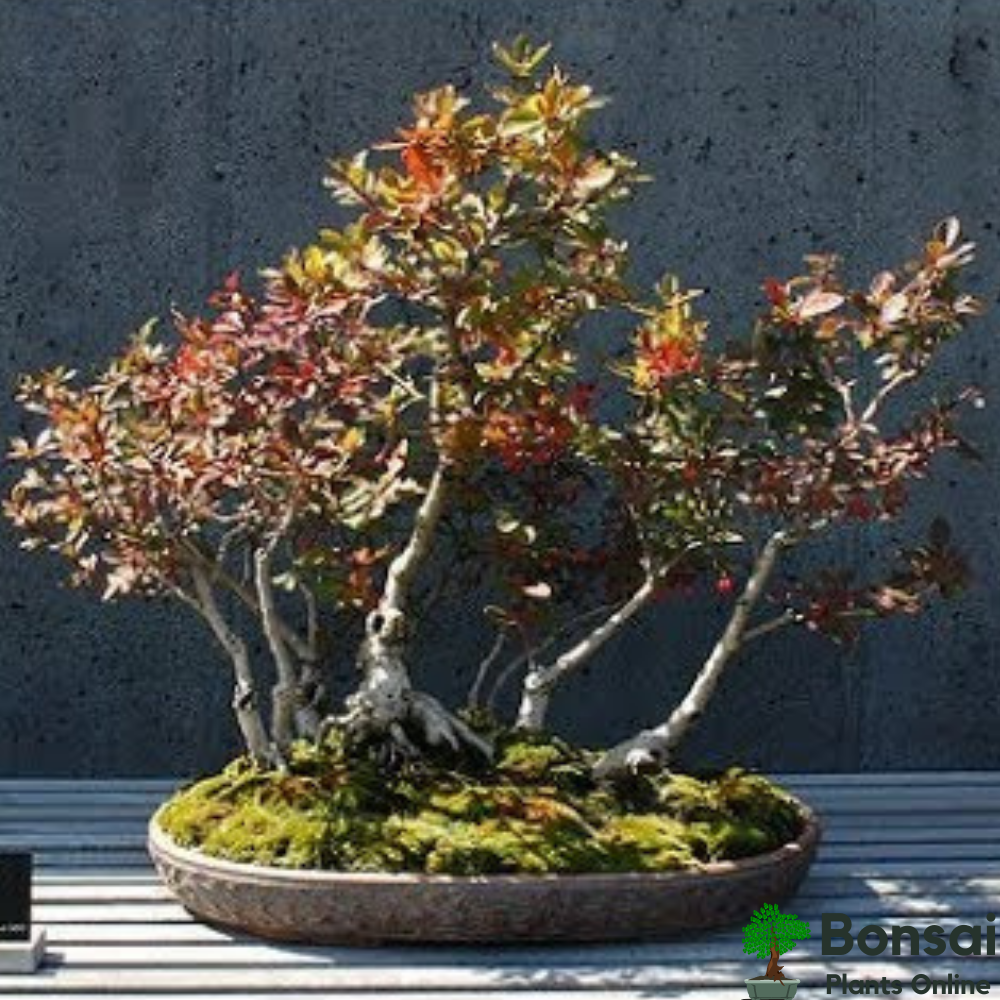
The Barberry bonsai offers dynamic aesthetics
The Barberry bonsai tree has it all. It changes colors and hues throughout the year for a dynamic appearance that changes with the seasons. This will make sure that your indoor spaces never look monotonous again.
The plant also gets laden with numerous berries of a rich red color right after the flowering season, giving it a multi-level visual appeal. Since the plant is also easy to maintain, it makes an ideal houseplant.
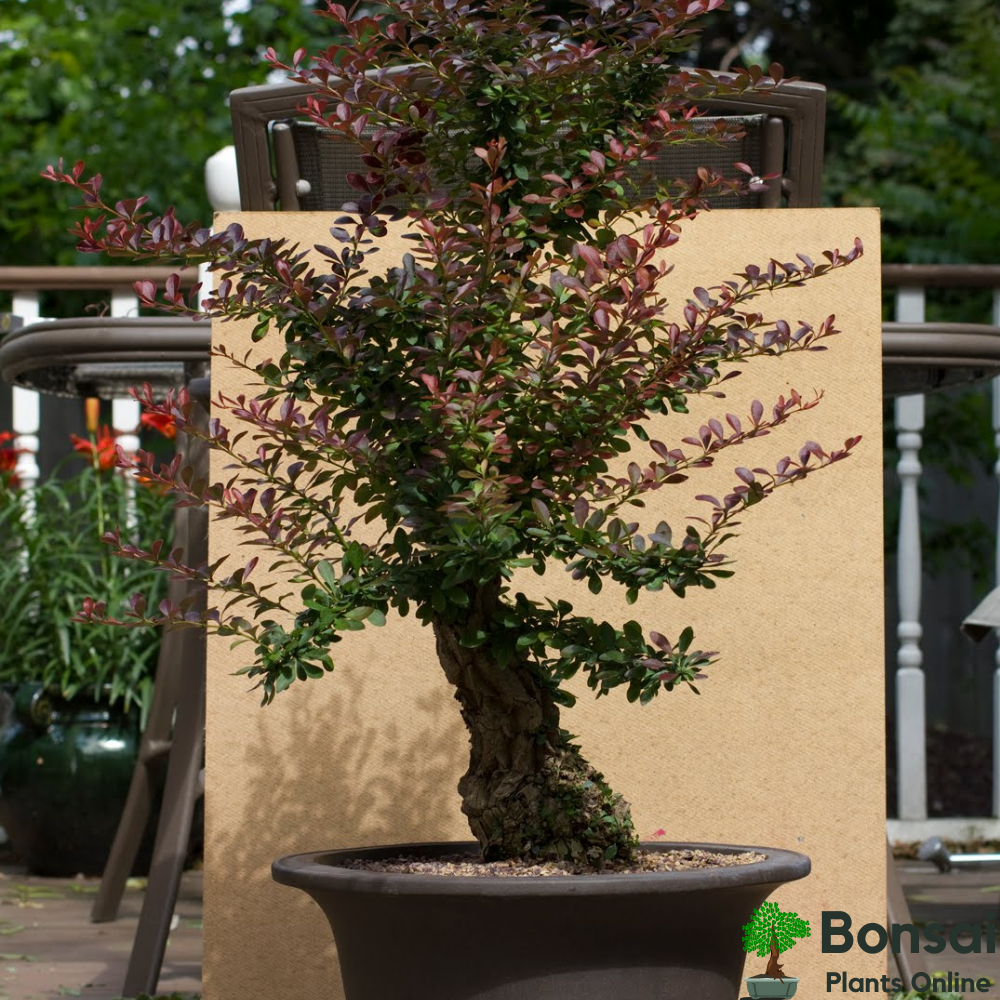
Give rich and natural colors to your indoors
Barberries have a shallow root system, which means they can grow in a pot without difficulty. Besides, the plant is also easy to shape. And although your Barberry bonsai tree comes pre-potted and pre-sculpted, maintaining the plant indoors is an enjoyable experience in itself.
The beautiful hues displayed by your Barberry bonsai are comparable to no other. These colors will vary from season to season, and create dynamic and beautiful aesthetics indoors.
The plant also bears rounded berries, which are a delight to look at. Overall, owning the Barberry bonsai tree will be fun as its delightful and dynamic looks will offer a sense of comfort and company.
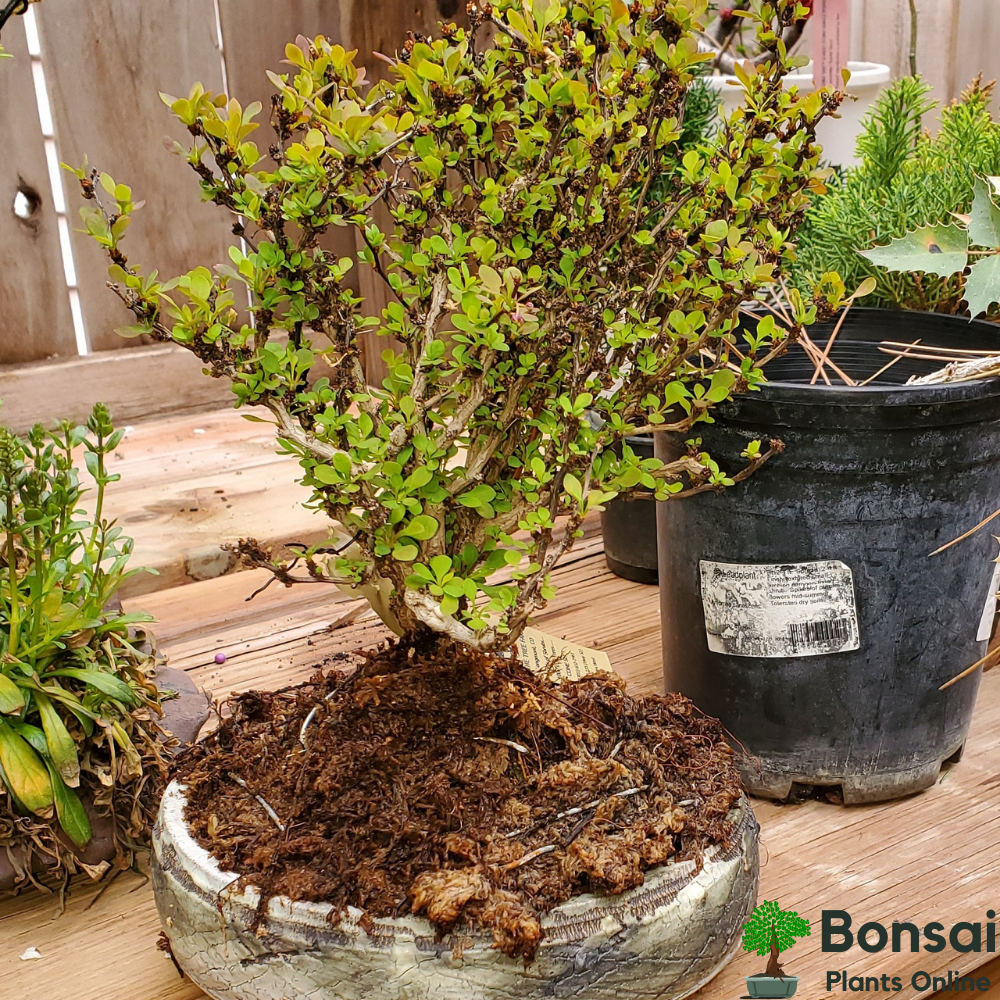
Care instructions for this Barberry bonsai
With simple care guidelines, the plant will beautify your indoor spaces with its rich and colorful looks.
- Placement: It is suggested to keep the Barberry bonsai exposed to maximum sunlight. Doing so will help the leaves turn their color in the typical and attractive manner of barberry trees.
- Watering: Lucky for homeowners, the Barberry bonsai tree doesn’t require extensive watering. Allow the pot to dry slightly in between watering sessions.
- Pruning: Pruning should be performed after the flowering season. The Barberry bonsai tree will grow back readily, meaning that pruning it isn’t a difficult task. Make sure to retain some of the older shoots and wood for the next season of flowering.
- Repotting: Repot the plant every one to two years. An alkaline soil mix should be used for repotting.
What do our customers have to say?
Bonsai Plants or any plant for that matter, BPO team does great work in design, health of the plants and post-sale service. I’ve been enjoying the association for my last 12 bonsai plants. 🙂

Impeccable packaging and delivery. I was surprised for the first time, and fall in love with their mastery in packing the plant and delivering it safe to my home. Interesting. Thank you.

True Gardening assistance. I got healthy plant and help whenever I needed through the dedicated WhatsApp channel. Not only the bonsai but also for the normal plants that you buy.

Frequently Asked Questions by customers
Is the plant difficult to care for?
Not at all. Even though the Barberry bonsai has a tremendously gorgeous appearance, it is one of the easiest to care for and maintain as a bonsai plant indoors. In fact, this plant is one of the few bonsais you can afford to forget watering or fertilizing, yet continue enjoying its rich colors and gorgeous structure.u003cbr>
Does it need fertilization?
Fertilization is not usually required to ensure the healthy growth of your Barberry bonsai tree. However, if the soil is really nutrient-deprived, you can use a weak-acting liquid fertilizer twice a month during the growing season.
What color are the flowers and berries of the Barberry bonsai?
The Barberry bonsai plant bears flowers of an exciting yellow color. During late winters, these flowers will transform into rounded berries of red color that will further add to the vibrance of the plant
Are the berries fit for consumption?
Yes, the berries from your Barberry or Berberis bonsai will have a tart and slightly sweet flavor. You can consume these berries from your very own houseplant either raw or with jam. They are even used as a herbal ingredient in dishes of rice and in salads.
When should I prune my Barberry bonsai?
It is recommended to prune the plant right after the flowering season. By doing so, you can ensure that the plant will bear flowers the following year as well, as flowers bud on shoots that are at least about a year old.
Can I keep this Barberry bonsai tree indoors?
Yes, this Barberry bonsai tree is an indoor plant. Since it requires minimal care and attention, it thrives indoors and is a popular option for creating rich aesthetics of various home decor styles such as Gothic and Oriental. In fact, the Barberry bonsai tree will do wonders to beautify the indoors of any home or office space.
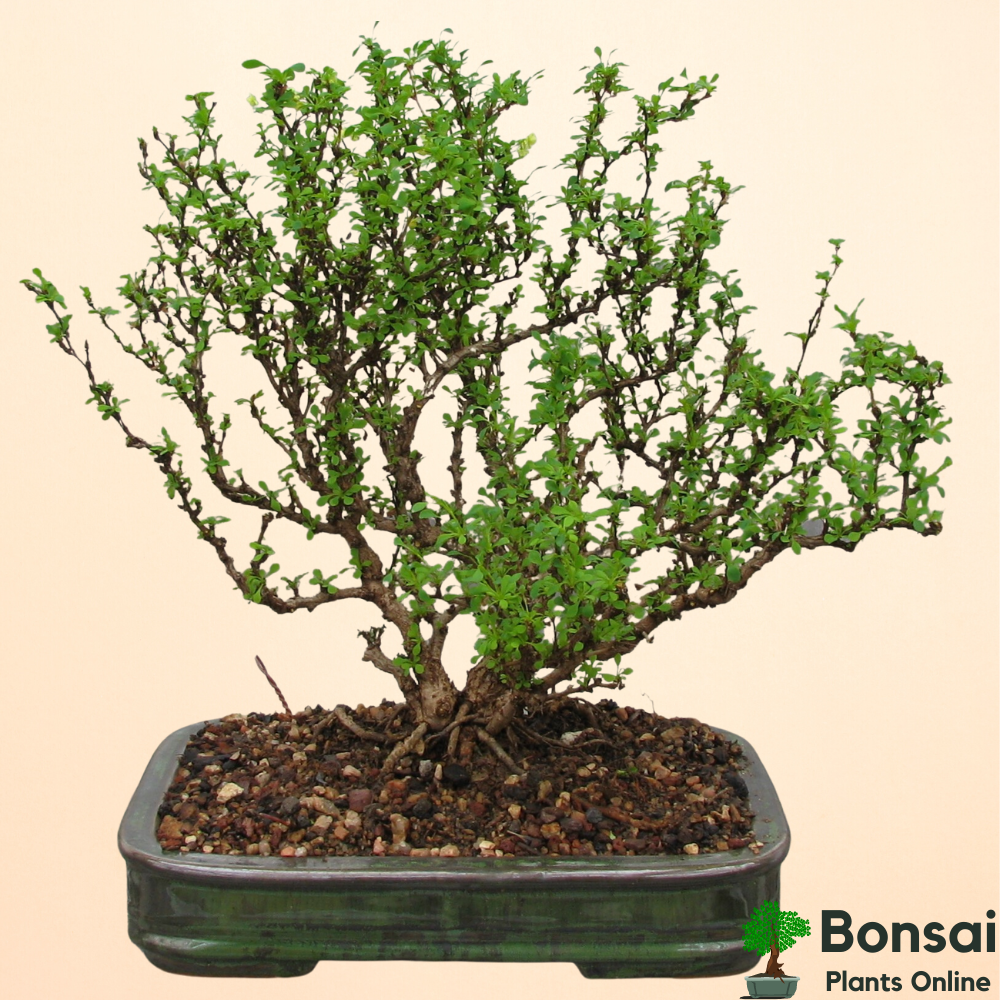

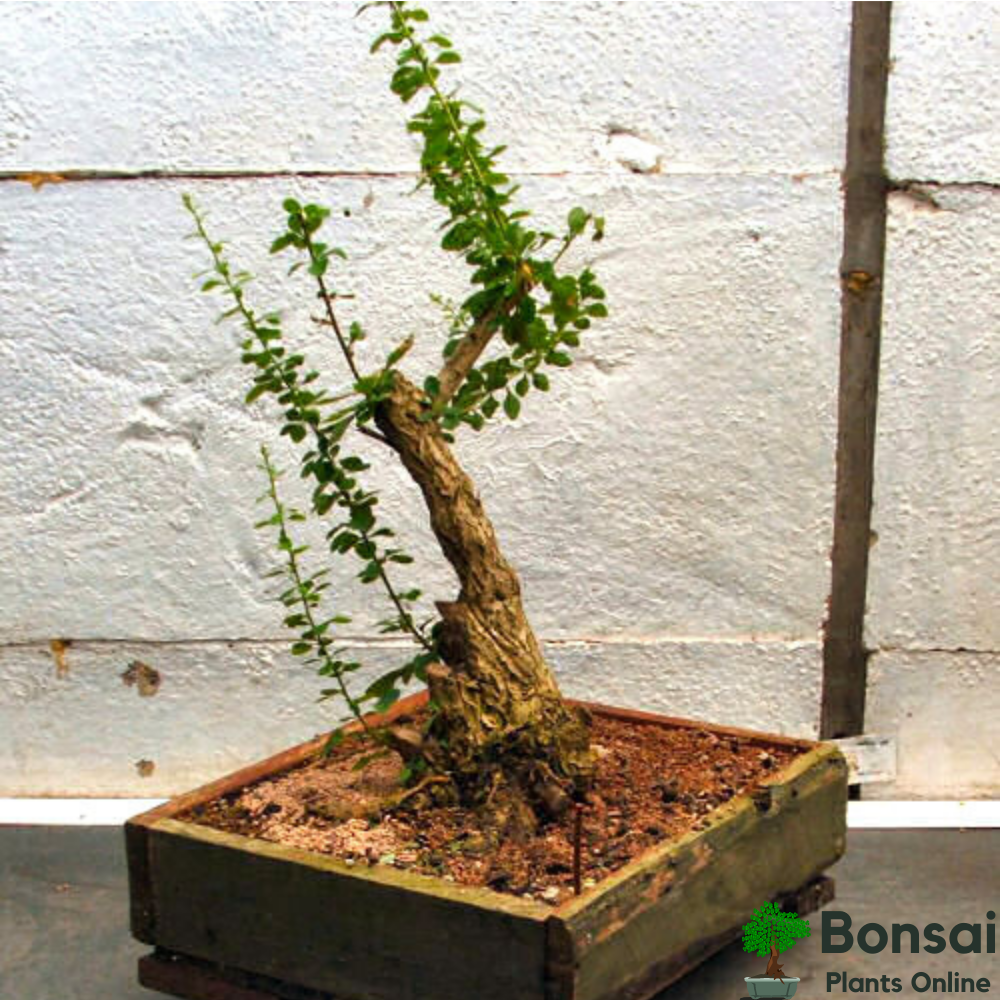

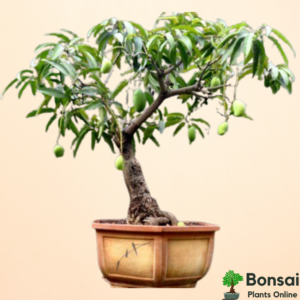
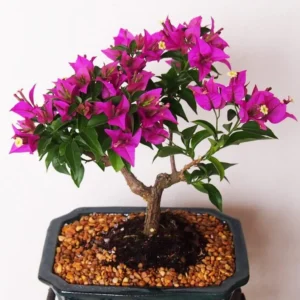
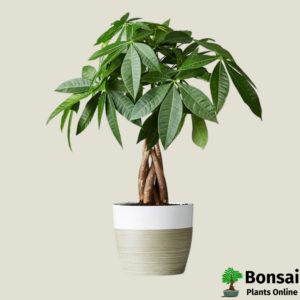
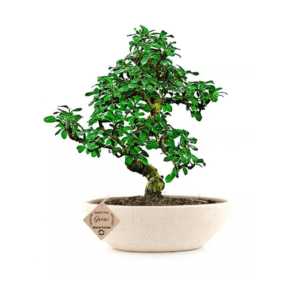
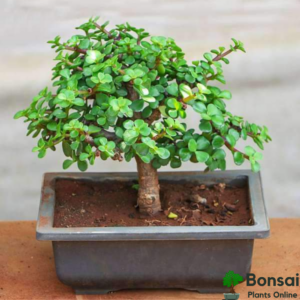
Reviews
There are no reviews yet.